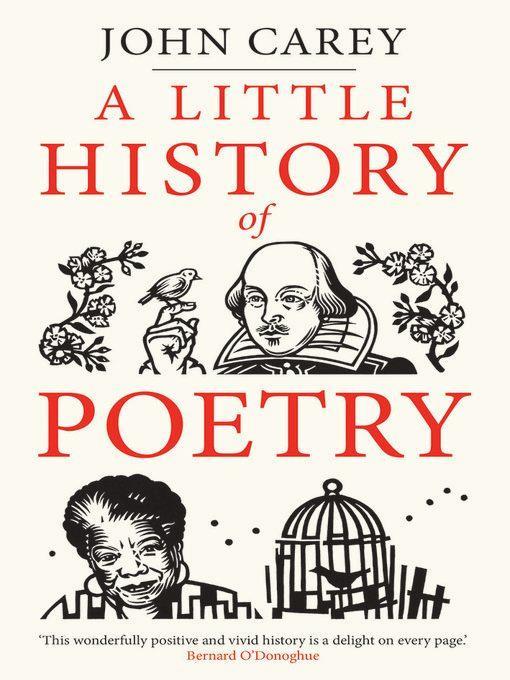
A Little History of Poetry
Little Histories
کتاب های مرتبط
- اطلاعات
- نقد و بررسی
- دیدگاه کاربران
نقد و بررسی

February 17, 2020
In this clever, wide-ranging history, British literary critic Carey (The Essential Paradise Lost) provides a tour of Western poetry, from Homer to Maya Angelou. Each brief chapter tackles one or more poets representative of a particular era, with excerpts from their works, brief accounts of their lives, and Carey’s insightful critical commentaries. His writing is instructive yet wry, as in his description of Petrarch’s love poetry as “numbingly tedious” and consisting of “a lot of weeping, but little else.” The reader is given a sense of how poets can be compared and contrasted with one another (Keats and Shelley, for example, as fellow exemplars of Romanticism who were, respectively, profoundly sensual and consumed with abstract ideals). Carey’s is a very traditional look at the Western canon, meaning the poets represented are overwhelmingly white, and perhaps even more overwhelmingly British, though a fair share of women are covered. Also, the book ends on poems written in the 1960s and ’70s, so there is no contemporary ground covered. In any case, it is called a “little history,” so one cannot expect it to be all things to all people. Those looking for a shrewdly condensed and accessible history of poetry could not ask for a better guide.

March 1, 2020
A light-speed tour of (mostly) Western poetry, from the 4,000-year-old Gilgamesh to the work of Australian poet Les Murray, who died in 2019. In the latest entry in the publisher's Little Histories series, Carey, an emeritus professor at Oxford whose books include What Good Are the Arts? and The Unexpected Professor: An Oxford Life in Books, offers a quick definition of poetry--"relates to language as music relates to noise. It is language made special"--before diving in to poetry's vast history. In most chapters, the author deals with only a few writers, but as the narrative progresses, he finds himself forced to deal with far more than a handful. In his chapter on 20th-century political poets, for example, he talks about 14 writers in seven pages. Carey displays a determination to inform us about who the best poets were--and what their best poems were. The word "greatest" appears continually; Chaucer was "the greatest medieval English poet," and Langston Hughes was "the greatest male poet" of the Harlem Renaissance. For readers who need a refresher--or suggestions for the nightstand--Carey provides the best-known names and the most celebrated poems, including Paradise Lost (about which the author has written extensively), "Kubla Khan," "Ozymandias," "The Charge of the Light Brigade," Wordsworth and Coleridge's Lyrical Ballads, which "changed the course of English poetry." Carey explains some poetic technique (Hopkins' "sprung rhythm") and pauses occasionally to provide autobiographical tidbits--e.g., John Masefield, who wrote the famous "Sea Fever," "hated the sea." We learn, as well, about the sexuality of some poets (Auden was bisexual), and, especially later on, Carey discusses the demons that drove some of them, Robert Lowell and Sylvia Plath among them. Refreshingly, he includes many women in the volume--all the way back to Sappho--and has especially kind words for Marianne Moore and Elizabeth Bishop, who share a chapter. Necessarily swift and adumbrative as well as inclusive, focused, and graceful.
COPYRIGHT(2020) Kirkus Reviews, ALL RIGHTS RESERVED.

























دیدگاه کاربران